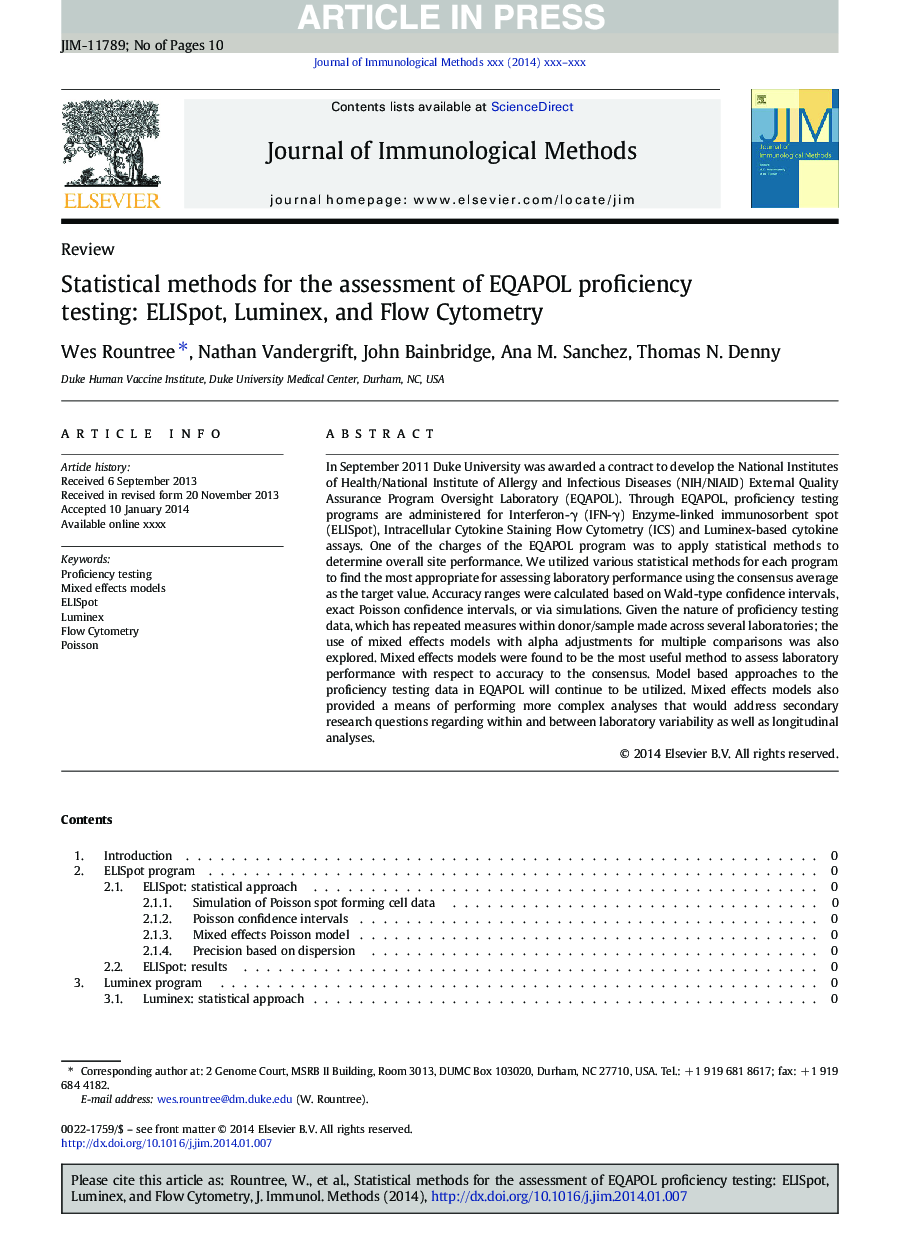| Article ID | Journal | Published Year | Pages | File Type |
|---|---|---|---|---|
| 8417716 | Journal of Immunological Methods | 2014 | 10 Pages |
Abstract
In September 2011 Duke University was awarded a contract to develop the National Institutes of Health/National Institute of Allergy and Infectious Diseases (NIH/NIAID) External Quality Assurance Program Oversight Laboratory (EQAPOL). Through EQAPOL, proficiency testing programs are administered for Interferon-γ (IFN-γ) Enzyme-linked immunosorbent spot (ELISpot), Intracellular Cytokine Staining Flow Cytometry (ICS) and Luminex-based cytokine assays. One of the charges of the EQAPOL program was to apply statistical methods to determine overall site performance. We utilized various statistical methods for each program to find the most appropriate for assessing laboratory performance using the consensus average as the target value. Accuracy ranges were calculated based on Wald-type confidence intervals, exact Poisson confidence intervals, or via simulations. Given the nature of proficiency testing data, which has repeated measures within donor/sample made across several laboratories; the use of mixed effects models with alpha adjustments for multiple comparisons was also explored. Mixed effects models were found to be the most useful method to assess laboratory performance with respect to accuracy to the consensus. Model based approaches to the proficiency testing data in EQAPOL will continue to be utilized. Mixed effects models also provided a means of performing more complex analyses that would address secondary research questions regarding within and between laboratory variability as well as longitudinal analyses.
Related Topics
Life Sciences
Biochemistry, Genetics and Molecular Biology
Biotechnology
Authors
Wes Rountree, Nathan Vandergrift, John Bainbridge, Ana M. Sanchez, Thomas N. Denny,
